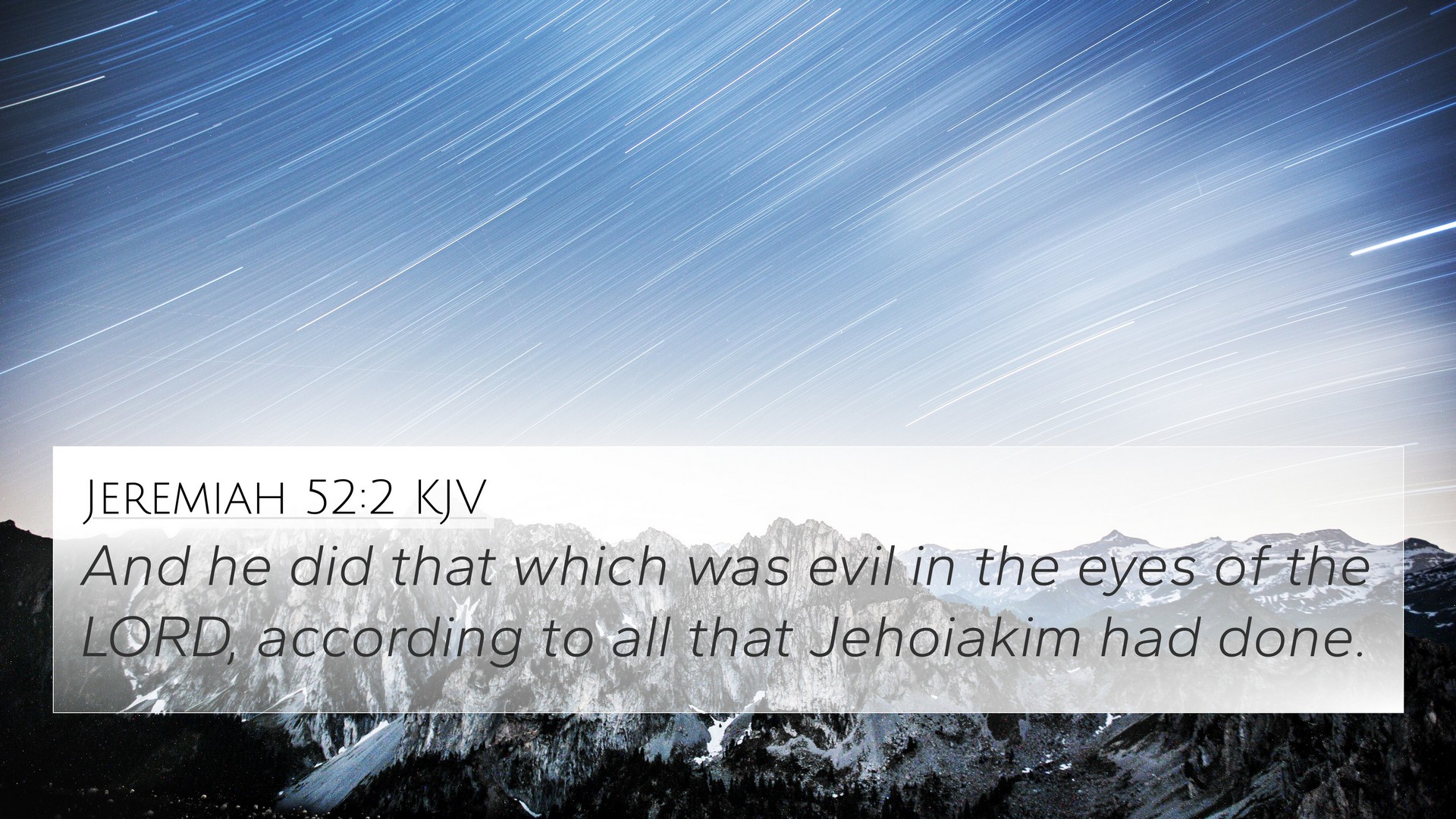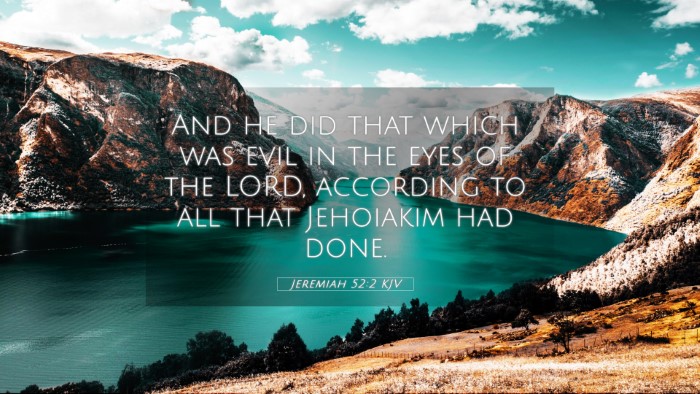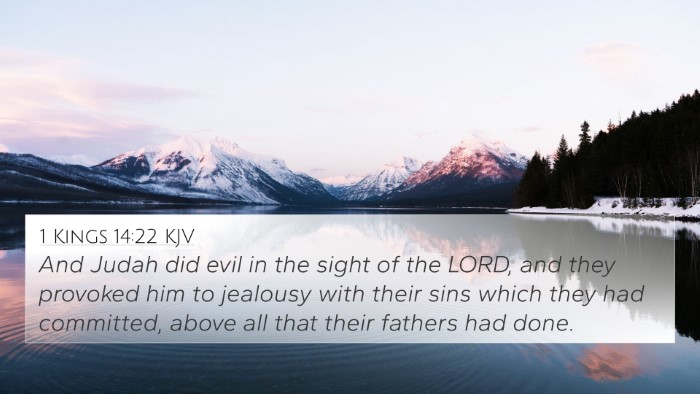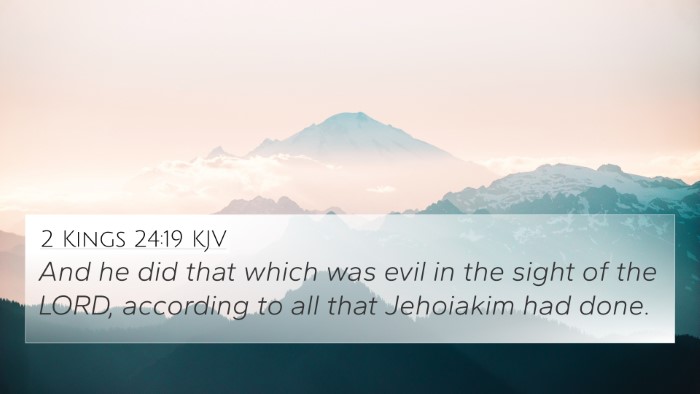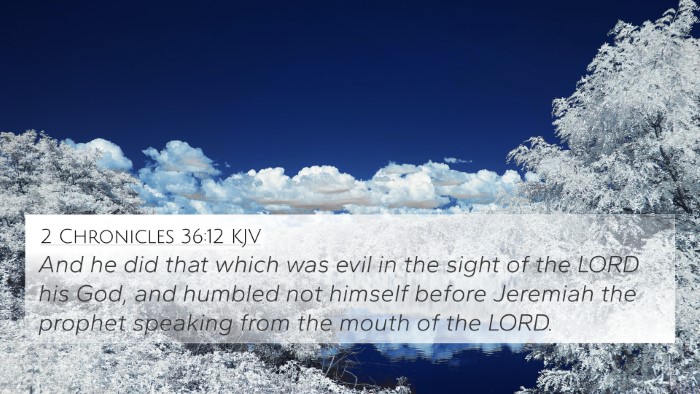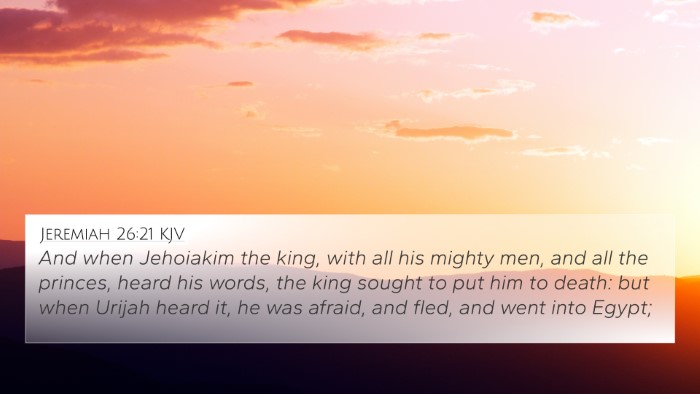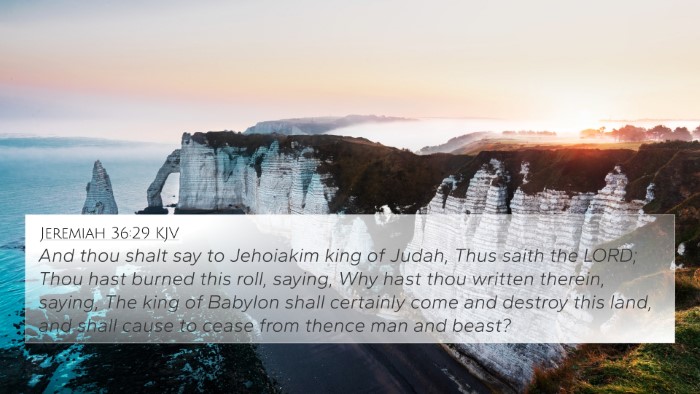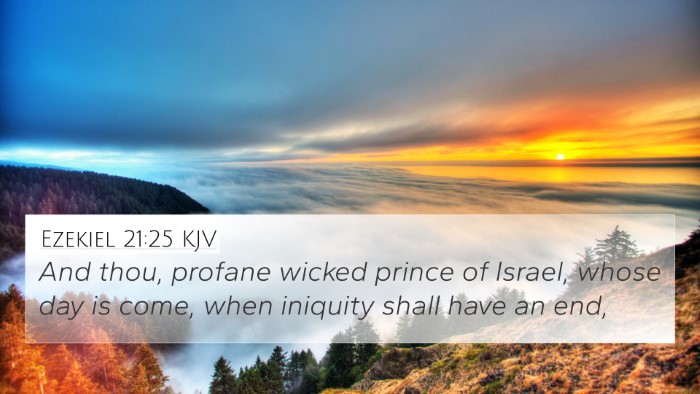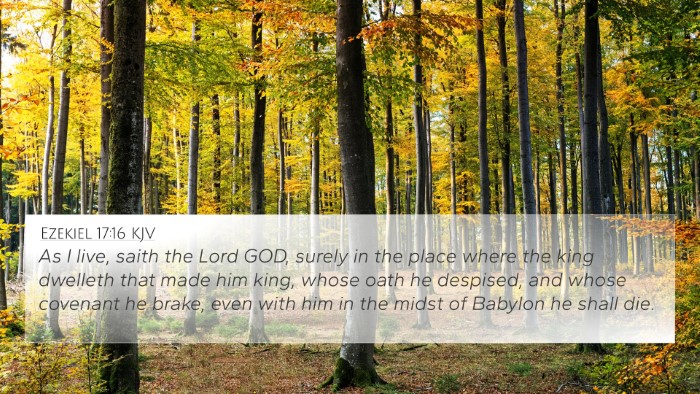Understanding Jeremiah 52:2
Jeremiah 52:2 states: "And he did evil in the sight of the LORD, according to all that Jehoiakim had done." This verse summarizes the reign of Zedekiah, the last king of Judah, emphasizing his failure to adhere to God's commandments, mirroring the actions of his predecessor.
This commentary aims to synthesize insights from renowned public domain commentators like Matthew Henry, Albert Barnes, and Adam Clarke, providing a deeper understanding of this significant scripture.
Verse Context and Significance
In examining Jeremiah 52:2, it is crucial to recognize the historical and spiritual context in which this verse was written. Zedekiah’s downfall and the ensuing Babylonian captivity are pivotal moments in Jewish history.
- Historical Context: Zedekiah ascended the throne after Jehoiakim’s death, a time characterized by political turmoil and divine judgment.
- Spiritual Decline: Zedekiah’s rule is described as "evil" because of his disobedience to God, which ultimately led to the fall of Jerusalem.
Commentary Insights
Matthew Henry's Perspective
Matthew Henry emphasizes the tragic consequences of Zedekiah's actions. He notes that Zedekiah's evil was not merely personal but reflected the moral decline of Judah under corrupt leadership. This verse serves as a warning against the dangers of straying from divine principles.
Albert Barnes' Analysis
Albert Barnes points out that this verse illustrates the continuation of sin from Jehoiakim to Zedekiah, highlighting how leaders influence national morality. His commentary connects this verse to the broader narrative of Israel's rebellion against God, thereby establishing a consistent theme of divine retribution throughout the scriptures.
Adam Clarke’s Observations
Adam Clarke expands on the spiritual implications of Zedekiah's actions, suggesting that his disobedience revealed a lack of faith and repentance. Clarke indicates that this verse embodies the transition from hope to despair for the people of Judah, as their failure to turn back to God culminated in imminent disaster.
Connection to Other Bible Verses
Jeremiah 52:2 finds its place within a larger tapestry of biblical themes of leadership, sin, and divine judgment. Here are some notable cross-references that illuminate the verse's meaning:
- 2 Kings 24:17-20: Details the political circumstances surrounding Zedekiah's reign.
- Ezekiel 17:15-16: Discusses Zedekiah’s covenant with Babylon and the consequences of his rebellion against God.
- 2 Chronicles 36:11-14: Highlights Zedekiah's evil ways and the role of faithfulness to God.
- Jeremiah 34:1-3: Relates God’s command through Jeremiah to Zedekiah urging loyalty.
- Isaiah 1:4: Describes the sinful nature of Judah, paralleling Zedekiah's choices.
- Lamentations 1:1: Reflects on the desolation that follows the sins of leaders.
- Romans 13:1-2: Connects the theme of authority's accountability before God.
Thematic Bible Verse Connections
The themes present in Jeremiah 52:2 resonate throughout scriptures regarding the consequences of poor leadership and disobedience. Understanding these connections can contribute significantly to spiritual growth and biblical literacy.
- Divine Judgment: The overarching theme of divine judgment in the face of rebellion against God is prevalent in Jeremiah, Isaiah, and the New Testament.
- Consequences of Leadership: The impact of leadership decisions mirrors patterns seen in both Old and New Testament narratives.
- Call to Repentance: Many scriptures urge leaders and the faithful to return to God to avoid calamity.
Cross-Referencing for Deeper Understanding
Employing a bible concordance or a bible cross-reference guide can assist in making these connections clear. The study of cross-references can enhance one's understanding of how different scriptures interact and reflect similar themes.
Conclusion
Jeremiah 52:2 serves as a vital lesson on the importance of moral integrity in leadership and the repercussions of straying from faithfulness. By exploring its connections through cross-referencing biblical texts, readers can gain comprehensive insights into the enduring wisdom found within the Bible.
